Today Current Affairs: 19th May 2021 for UPSC IAS exams, State PSC exams, SSC CGL, State SSC, RRB, Railways, Banking Exam & IBPS, etc
Table of Contents
Snow Leopard: WWE Report:

The World Wildlife Fund for Nature (WWF) has released a report titled “Over 100 Years of Snow Leopard Research — A spatially explicit review of the state of knowledge in the snow leopard range”.
Key findings:
- More than 70 per cent habitat of the snow leopard, over 12 Asian countries, remains unresearched.
- Nepal, India and China had conducted the most snow leopard research, followed by Mongolia and Pakistan.
- Despite a major research focus on snow leopard population assessments, less than three percent of the big cat’s range had robust data on abundance.
- Globally, there could be as few as 4,000 snow leopards left in Asia’s high mountains and this remaining population faces continued and emerging threats.
- Threats include Increased habitat loss and degradation, poaching, and conflict with communities.
- India has been conserving snow leopard and their habitat through the Project Snow Leopard (PSL).
- India is also party to the Global Snow Leopard and Ecosystem Protection (GSLEP) Programme since 2013.
- For conservation, India has identified three large landscapes, namely, Hemis-Spiti across Ladakh and Himachal Pradesh; Nanda Devi – Gangotri in Uttarakhand; and Khangchendzonga – Tawang across Sikkim and Arunachal Pradesh.
- Project Snow Leopard (PSL) was launched in 2009 to promote an inclusive and participatory approach to conserve snow leopards and their habitat.
- Snow Leopard is on the list of 21 critically endangered species for the recovery programme of the Ministry of Environment Forest & Climate Change.
US Global Entry Program:
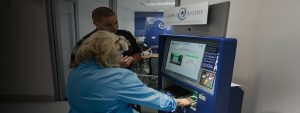
Indian security agencies in the past two years checked the antecedents of more than 9,000 Indians who wanted to enroll for the US’ Global Entry Program.
- The Crime and Criminal Tracking Network and Systems (CCTNS) is being used for antecedent verification.
Key Points - Global Entry is a US Customs and Border Protection (CBP) program that allows speedy clearance for low-risk travellers upon their arrival in the US.
- Though the pilot project started in 2008, India became a member of Global Entry in 2017.
- The travellers are pre-approved for the programme after a rigorous background check.
- After receiving a request, the US authorities send them to the Ministry of External Affairs (MEA). The MEA forwards it to the Ministry of Home Affairs, which taps other ministries, State police and other databases to run a background check.
- The CBP does not process the application if a person has been “convicted of any criminal offense or have pending criminal charges, including outstanding warrants, have been found in violation of any customs, immigration or agriculture regulations or laws in any country.”
Crime and Criminal Tracking Network and Systems (CCTNS):
- CCTNS is a centrally funded scheme, developed by the National Crime Records Bureau (NCRB).
- It is a Mission Mode Project under the National e-Governance Plan (NeGP) of the Ministry of Home Affairs.
- It was approved in 2009.
- It is a secure application that links over 97% of police stations in the country.
- Objectives:
- Make the Police functioning citizen friendly and more transparent by automating the functioning of Police Stations.
- Improve delivery of citizen-centric services through effective usage of ICT.
- Provide the Investigating Officers of the Civil Police with tools, technology, and information to facilitate the investigation of crime and detection of criminals.
Electoral Bonds:

The Electoral Bonds worth Rs. 695.34 crore were sold during elections to the Assemblies of Tamil Nadu, Puducherry, West Bengal, Assam, and Kerala.
- The amount sold was the highest-ever for any Assembly elections since the scheme started in 2018.
- Electoral Bond is a financial instrument for making donations to political parties.
- The bonds are issued in multiples of Rs. 1,000, Rs. 10,000, Rs. 1 lakh, Rs. 10 lakh, and Rs. 1 crore without any maximum limit.
- State Bank of India is authorized to issue and encash these bonds, which are valid for fifteen days from the date of issuance.
- These bonds are redeemable in the designated account of a registered political party.
- Political parties registered under Section 29A of the Representation of the People Act, 1951, which have secured not less than 1% of the votes in the last general election to an Assembly or Parliament, are eligible to open current accounts for the redemption of electoral bonds.
- The bonds are available for purchase by any person (who is a citizen of India or incorporated or established in India) for a period of ten days each in the months of January, April, July, and October as may be specified by the Central Government.
- A person being an individual can buy bonds, either singly or jointly with other individuals.
- The donor’s name is not mentioned on the bond.
- There are two key problems with it – one, lack of transparency as the public do not know who is giving what to whom and what they are getting in return; two, that only the government, through ministries, has access to this information.
- However, the Election Commission of India has said that the scheme is one step forward compared to the old system of cash funding, which was unaccountable.
- Also, recently, the Central Information Commission (CIC), the lead body for implementing the Right to Information Act 2005, has ruled that the disclosure of the identity of electoral bond scheme donors will not serve any larger public interest and will violate provisions of the Act itself.
Medicine From The Sky Project: Telangana:

The Telangana government has selected 16 Primary Healthcare Centres (PHCs) for pilot testing the ambitious ‘Medicine from the sky’, the first-of-its-kind project.
- The project involves the delivery of medicines through multiple drones.
- The project is being launched following the approval granted by the Civil Aviation Ministry.
- The Ministry has granted a conditional exemption to the Telangana Government from the Unmanned Aircraft System Rules 2021 for conducting experimental Beyond Visual Line of Sight (BVLOS) drone flights for delivery of vaccines.
- The project would be launched in three waves starting with a pilot followed by mapping the route network for the operation of drones for delivering vaccine/medicine in the desired community health centres and PHCs.
- Collaborators: Telangana government, World Economic Forum and HealthNet Global.
- HealthNet Global is a private limited company that provides quality affordable health plans for individuals, families, Medicare and businesses.
- Aim: To assess alternative logistics routes in providing safe, accurate and reliable pick up and delivery of health care items like medicines, Covid-19 vaccines, units of blood and other lifesaving equipment from the distribution centre to specific locations and back.
Change In The Storage Of Covid Vaccines:
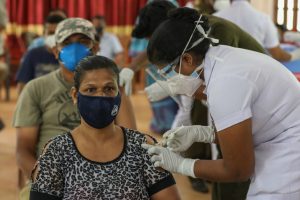
The European Medicines Agency (EMA) recommended a change to the approved storage conditions of the Pfizer-BioNTech COVID-19 vaccine which changes the way these vaccines are handled in vaccination centers across the European Union (EU).
- With the new recommendations, an unopened thawed vial of the Pfizer-BioNTech vaccine can be stored between 2-8 degrees Celsius for up to a month, which means that it can be stored in a regular refrigerator once it has been taken out of the deep freeze.
- Before this, an unopened thawed vaccine vial could be kept in a regular refrigerator for a period of only up to five days.
- This increased flexibility in storing and handling the vaccines is expected to positively impact the vaccine rollout in the EU, which has faced some problems since the vaccination drive started.
- mRNA vaccines need to be stored at much lower temperatures than some other kind of COVID-19 vaccines because RNA is much less stable than DNA, which is due to the sugars that their molecules are made up of.
- The second reason for the relative instability of RNA is its shape, which is a single strand, while DNA is expressed as a double-stranded helix.
Naming Of Coronavirus Variants: WHO:
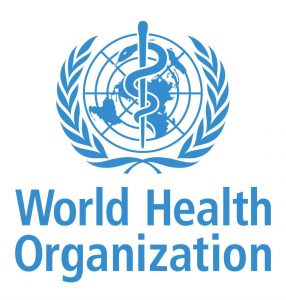
The World Health Organization (WHO) would unveil a system of the naming of coronavirus variants drawn from the way tropical storms are named, WHO Chief Scientist Soumya Swaminathan says.
- The initiative, similar to how hurricanes are labeled, seeks to remove the stigma.
- It will also be easier for the lay public to remember rather than these complicated lineage numbers.
- The WHO and health and science agencies across the world refer to viruses and their variants by formal lineage names, which are a combination of letters and names that point to the relationships between different variants.
- Variants such as B.1.1.7 and B.1.617 suggest that they have certain mutations in common and as well clues to their evolutionary history.
- However, because virus names and their associated diseases have frequently been named after geographical places where outbreaks were first reported or samples first isolated — such as the West Nile virus or Ebola.
- 1.1.7 started to be known as the ‘U.K. variant’ and B.1.351 as the ‘South African’ variant.
- The dilemma of having names that don’t stigmatize places but also are amenable to popular use has to an extent been solved by the system of naming hurricanes, or tropical cyclones.
- The World Meteorological Organisation leaves it to countries that surround a particular ocean basin to come up with names.
Customs (Import of Goods at Concessional Rate of Duty) Rules: Changes:

The Government has brought changes in the existing Customs (Import of Goods at Concessional Rate of Duty) Rules, IGCR 2017 to boost trade facilitation.
- The Central Board of Indirect Taxes and Customs has introduced changes through the Customs (Import of Goods at Concessional Rate of Duty) Amendment Rules, 2021.
- The IGCR, 2017 lays down the procedures and manner in which an importer can avail the benefit of a concessional Customs duty on import of goods required for domestic production of goods or providing services.
- One major change that accommodates the needs of trade and industry is that the imported goods have been permitted to be sent out for job work.
- The absence of this facility had earlier constrained the industry especially those in the Micro, Small, and Medium Enterprises sector which did not have the complete manufacturing capability in-house.
- Importers who do not have any manufacturing facility can now avail of the IGCR, 2017 to import goods at concessional Customs duty and get the final goods manufactured entirely on a job work basis.
- However, some sectors such as gold, jewelry, precious stones, and metals have been excluded.
- Another major incentive now provided is to allow those who import capital goods at a concessional Customs duty to clear them in the domestic market on payment of duty and interest, at a depreciated value.
- This was not allowed earlier and manufacturers were stuck with the imported capital goods after having used them as they could not be easily re-exported.
Long Working Hours Led To Death:

Long working hours led to 7.45 lakh deaths from stroke and ischemic heart disease in 2016, a 29% increase since 2000, according to the latest estimates by the World Health Organization (WHO) and the International Labour Organization (ILO) published in Environment International.
- In a first global analysis of the loss of life and health associated with working long hours, WHO and ILO estimate that in 2016, 3.98 lakh people died from a stroke and 3.47 lakh from heart disease as a result of having worked at least 55 hours a week.
- Between 2000 and 2016, the number of deaths from heart disease due to working long hours increased by 42%, and from stroke by 19%.
- This work-related disease burden is particularly significant in men (72% of deaths occurred among males), people living in the Western Pacific and South-East Asia regions, and middle-aged or older workers.
- Most of the deaths recorded were among people dying aged 60-79 years, who had worked for 55 hours or more per week between the ages of 45 and 74 years.
- With working long hours now known to be responsible for about one-third of the total estimated work-related burden of disease, it is established as the risk factor with the largest occupational disease burden.
- The study concludes that working 55 or more hours per week is associated with an estimated 35% higher risk of a stroke and a 17% higher risk of dying from ischemic heart disease, compared to working 35-40 hours a week.
Waqf:
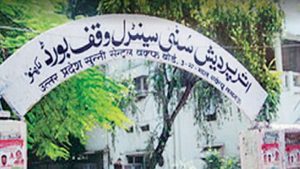
The Uttar Pradesh Sunni Central Waqf Board on Tuesday condemned the demolition of a mosque in a tehsil compound in the Barabanki district by the administration, terming it a “patently illegal and high-handed action” and demanded its restoration.
- The Uttar Pradesh Sunni Central Waqf Board (or U.P. Sunni Waqf Board) is a body constituted under The Wakf Act, 1954.
- It manages the affairs of Sunni Muslim Waqf (charity) properties, waqf institutions, and the marriage records of the Sunni Muslim community of the state of Uttar Pradesh.
- The Sunni Waqf Board has been the main Muslim litigant in the Babri Masjid-Ram Janmabhoomi title dispute.
- A waqf (also known as wakf or hubous) is an inalienable charitable endowment under Islamic law. It typically involves donating a building, plot of land, or other assets for Muslim religious or charitable purposes with no intention of reclaiming the assets.
- The state waqf boards were established by the state governments in view of the provisions of Section 9(1) of the Wakf Act, 1954.
- India also has a Central Waqf Council to advise the government “on matters concerning the working of boards and the due administration of wakfs.”
International Museum Day 2021:
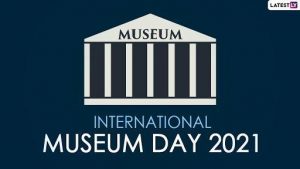
Culture Ministry organized a panel discussion on the occasion of International Museum Day 2021.
- International Museum Day falls on 18 May every year.
- The objective of International Museum Day, as declared by the International Council of Museums(ICOM), is to raise awareness about the fact that, “Museums are an important means of cultural exchange, enrichment of cultures and development of mutual understanding, cooperation and peace among peoples.”
- The theme for International Museum Day 2021 is ‘The Future of Museums: Recover and Reimagine’.




